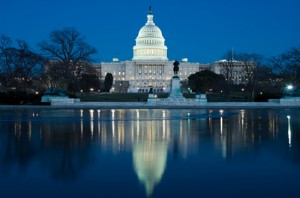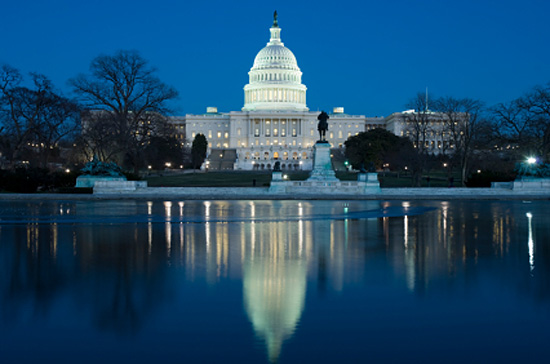 By Farah Mohamed, McClatchy Newspapers –
By Farah Mohamed, McClatchy Newspapers –
WASHINGTON — A House of Representatives committee revisited past hearings and presented key findings Wednesday in an attempt to draw conclusions on radicalization within the Muslim American community, but was left undecided. The hearing was the fifth in a series of discussions on the controversial issue.
One member of Congress likened the hearing to reality TV and talk show host Oprah Winfrey. Another grilled the witnesses on their security clearances.
The hearing, “The American Muslim Response to Hearings on Radicalization Within Their Community,” convened by Rep. Peter King, R-N.Y., the chairman of the Committee on Homeland Security, was supposed to draw conclusions from the previous four hearings. While some members and witnesses pointed to progress, others questioned the hearings’ purpose.
The previous hearings had covered the topics of radicalization and response within the Muslim American community, radicalization in prisons, terrorist recruitment and threats to military communities.
“Fifteen months ago this committee — the Homeland Security Committee, which was formed in the wake of the tragic attacks of 9/11 — held the first in a series of hearings into the radicalization of the Muslim American community,” King said in his opening statement. “The necessity of these hearings was obvious — and there should have been bipartisan support.”
Referencing past opposition, he stressed the necessity of the hearings and said they’d led to numerous revelations.
King released a report with the committee’s key findings, including the severity of the threat of radicalized Muslim Americans to homeland security, the presence of al-Qaida recruitment in the country — specifically in prisons and military communities — and what the findings said was a lack of cooperation between Muslim Americans and law enforcement to “confront the Islamist ideology driving radicalization.”
Top committee Democrat Bennie Thompson of Mississippi remained skeptical of the hearings.
“We are holding today’s hearing to discuss the effect of previous hearings. I am not sure we have ever had a hearing to gauge the effects of prior hearings,” Thompson said. “Given the challenges the nation faces in homeland security . . . I am not sure that a hearing to gauge the effects of our hearings is the most effective use of congressional time and attention.”
Three of the four witnesses, all Muslims — M. Zuhdi Jasser, the president and founder of the American Islamic Forum for Democracy; Asra Nomani, a former Wall Street Journal reporter and Islamic culture instructor to the U.S. military; and Qanta A.A. Ahmed, a physician and political and religious writer — supported the hearings and said they’d opened up a much-needed dialogue within their community.
“Immediately after my testimony, we received literally hundreds of e-mails, over 90 percent of which were extraordinarily complimentary, from American Muslims,” Jasser said of his organization.
Jasser has asserted continually that the American Muslim community needs to do more to differentiate between spiritual Islam and political Islam.
“I’m a devout Muslim, and I’m doing this because I acknowledge that there’s a problem,” Jasser said in an interview before the hearing. “We want to wake up our own community to things that radicalize them. Until you have that platform,” he said, there isn’t going to be increased initiative.
But witness Faiza Patel, a co-director of the Liberty and National Security Program at the Brennan Center for Justice, and other members of the committee disagreed, seeing the hearings as potential alienation of the Muslim American community.
“The hearings drive a wedge between Muslims and their fellow Americans,” Patel said.
“When members of Congress hold hearings about the ‘radicalization’ of American Muslims and expressly place an entire community under the spotlight, it sends the message to all Americans that the government views this community as a security threat. And the public appears to be receiving this message loud and clear.”
Patel cited a Pew study that showed Muslim Americans as generally opposed to violence against civilians and holding a “very unfavorable” view of al-Qaida. She said American Muslims were also key to uncovering homegrown terrorism.
Other critics of the hearings included Democratic Reps. Sheila Jackson Lee and Gene Green, both of Texas. Jackson Lee said actions taken to address American Muslim radicalization had infringed on civil liberties. Green said the hearings were unfair and that there should be hearings on the radicalization of Christians and other groups, too.
“I want to be fair to Muslims,” he said. “To be fair, you have to go beyond discussing the radicalization of Islam, and we’re not doing that.”
King and Rep. Michael McCaul, R-Texas, however, urged the committee not to overlook the correlation between Islam and national security, saying the threat is there even if the Islam in question is extremist and not representative of the majority of Muslims.







